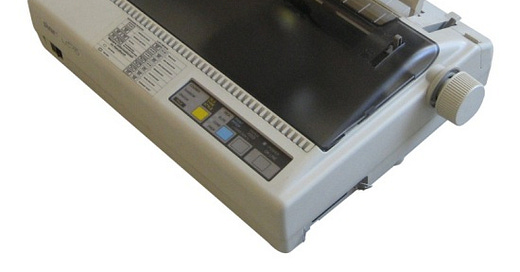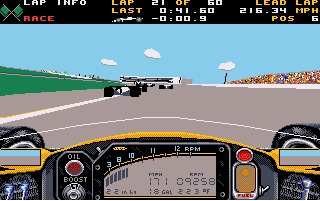A '66 legend and veteran paper man at odds with new tech world (and utilities fields)
Coming to terms with new surroundings and new subjects can be a challenge for anyone
“Who’s the old bloke with the wobbly tooth sitting behind the partition?”
I’d just been asked to print off a feature on PC utilities software that had been sent in by a freelancer (who happened to be an old builder friend of the editor, who knew a bit about computers). The article had arrived in the post, on a 3.5 inch floppy disk. Luckily, my top of the range Acer PC had dual floppy drives.
“Morning Harold, this article is for subbing.” There was a mumbled reply and nod, as I handed over a stack of paper and retreated quickly. I’d been warned not to linger for fear he would strike up a conversation about the technicalities of being a southpaw boxer, or the rights and wrongs of the penalty shootout. It didn’t sound too bad to be honest especially when weighed-up against reading another few thousand words on ethernet cards or dot matrix printers.
In the end I heeded the advice and slowly backed out of the partitioned corner, while Harold filled his pipe with tobacco and lit up, sending wafts of smoke over the wall and across the office. A few hours later, Harold emerged from behind the room dividers to drop the feature onto my desk before shuffling off in the direction of the toilet. The proof was covered in ink, with my headline suggestion crossed out (not for the first time) only to be replaced with Harold’s own idea of a clever, eye catching play on words - Utilities field is vast.
It was to be a recurring theme. I really didn’t know much about computers and the tech industry but Harold clearly knew so much less (unless of course the utilities field was in fact vast). But he had earned the right to know less because he was a media veteran of the World Cup in 1966, and an old, experienced newspaper man. What he didn’t know about subbing…
Apparently, Harold had worked in the comms team for the Football Association and wrote the official World Cup Report 1966 (see below), as well as a News of the World (scurrilous and now defunct Sunday red top tabloid) football annual in ‘78.
What did he really think of this new world in which he was now working? Computer magazines, untrained writers, modern grammar, women in the workplace. It was a new age, a punk-rock-like levelling of the playing field where the upstart techy journos were the new kids on the block. OK, we weren’t working on newspapers or in TV but we could mash out 2,500 words on graphics cards or network cabling at the drop of a hat (well, I couldn’t but others could).
There were unsubstantiated rumours. Harold was (allegedly) the registered owner of the publishing business, a proxy for the CEO who was apparently banned by Companies House. We never knew for sure but to be honest, it fitted the vibe. Of course we were working under a banned boss (allegedly - that can apply to the word ‘working’ as much as the ‘banned’ bit).
It was round about this time that the management sent out a memo (printed on the dot matrix - we heard it coming). They were looking for new ideas for magazines. Did anyone have any particular interests? A few people submitted plans - a theatre magazine, something to do with knitting. The one that made us all laugh was the proposal for a lads mag, focused on “bikes, booze and girls.” How we chuckled, our late 80s intellectual sensibililties tickled by the bruteness and sexism of it all.
The management dismissed all the ideas. Suddenly, they had other things on their mind and anyway, how were they to know that a new, multi-million pound lads mag culture would spring up out of nowhere, just four years later.
For Harold, semi-retired and doing everything he could to maintain the stereotype of the old sports newspaper man, this was surely a last hurrah. He continued to butcher headlines, almost as if he was doing it on purpose.
Sometimes when I am walking along Victoria Street I can still see him, shuffling along in the direction of Parliament Square, to pick up his car, parked in the House of Lords’ car park. I wish now that I had taken the time. I still have so many questions.
The big news was the removal of my stabilisers. Promotion to fully-fledged staff writer (£10,250 p.a) was not before time. I had clearly wowed the middle-age white men in grey suits, with my knack for double entendre headlines and grasp of complex computer technology. So much so, that I was sent to interview Robert Madge, founder and CEO of Madge Networks, pioneer of token ring networking.
For a moment I did wonder if this was a joke. Was it the geeky equivalent of sending me out to buy sky hooks or a left-handed kettle? When I turned up at his office (dress code: jeans and white t-shirt) it became clear very quickly that I was completely out of my depth. I did what anyone would do in that situation and mentally ran but I did have one question before I left…
“I’m sorry Robert, but what actually is token ring networking?”
At the time, I remember feeling slightly embarrassed, for not knowing anything and for wasting his time but as it turns out, it was the right question to ask. We got on well after that and it taught me a lesson about how to approach strange technologies and alien situations - just be curious and act a little dumb (not hard).
When I got back to the office my Compaq Deskpro 386 PC with 40MB hard drive had arrived. New review model (the Acer one had to be sent back - I had no idea how to review a computer, so quite a blag). I started ‘testing’ the Compaq with the Indianapolis 500 racing simulation PC game. A classic benchmarking tool, I told passing management.
When it came to firing-up Wordstar 5 (popular word processor before Microsoft Word existed. Came with an orange glow) to write-up my exclusive with his Madge, the headline juices were flowing…
Madge rings changes for token networking push
Madge’s ring hurts ethernet with token gesture
Token ring field is quite big
(thanks Harold).







Boothy had a similar experience where he interviewed the CEO of a networking company and asked him if it wouldn't be easier just to pass around floppies. I had my own share, asking the CEO of Wordstar what the company was going to call the Windows version. "Wordstar for Windows..." Lovely site, Marco.